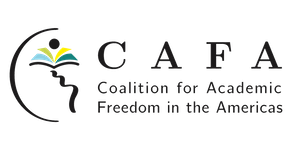The Coalition for Academic Freedom in the Americas (CAFA) is conducting a study on legislation related to academic freedom across the Americas. To enrich the report, CAFA invites civil society organizations and academic institutions to submit their contributions based on this questionnaire.
This initiative aims to conduct a comparative analysis of the constitutions, general education laws, and higher education laws of all countries in the Americas in order to assess the extent to which they recognize and guarantee academic freedom and university autonomy, in accordance with the Inter-American Principles approved by the Inter-American Commission on Human Rights (IACHR).
The ultimate goal is to generate an assessment that identifies progress, regulatory gaps, and subregional trends, as well as to formulate recommendations to strengthen the legal and institutional protection of academic freedom in the region.
To participate, please complete the form with your input by Monday, October 13.
Global approaches to academic freedom
Frameworks on academic freedom are particularly important for articulating fundamental values and for providing guidance on how best to protect them. While specific articles may differ from one instrument to another, they address what is academic freedom, what it requires for its implementation and, who are the rights holders, among others dimensions. Existing examples include the Principles for Implementing the Right to Academic Freedom at the global level and the InterAmerican Principles on Academic Freedom and University Autonomy at the regional level.
